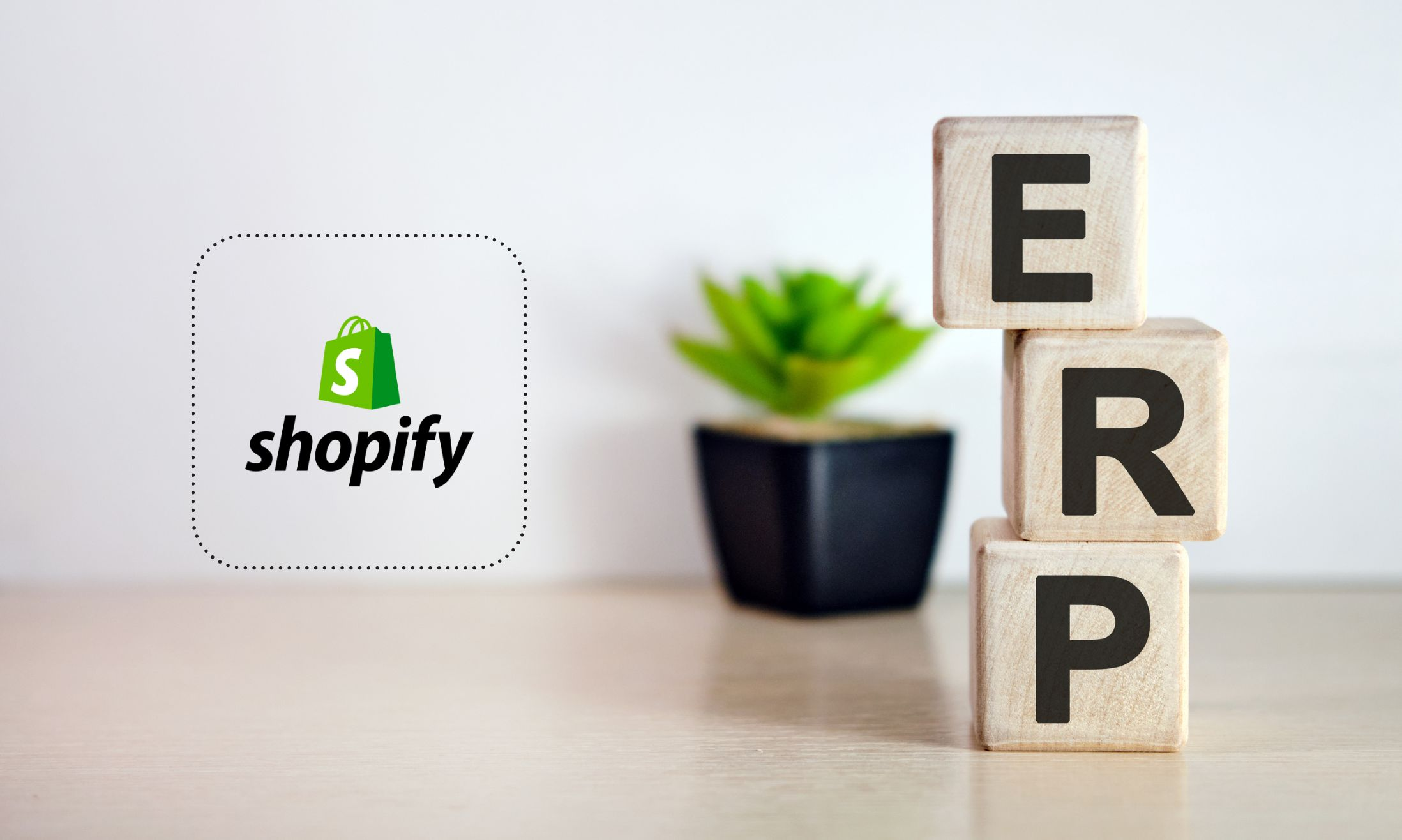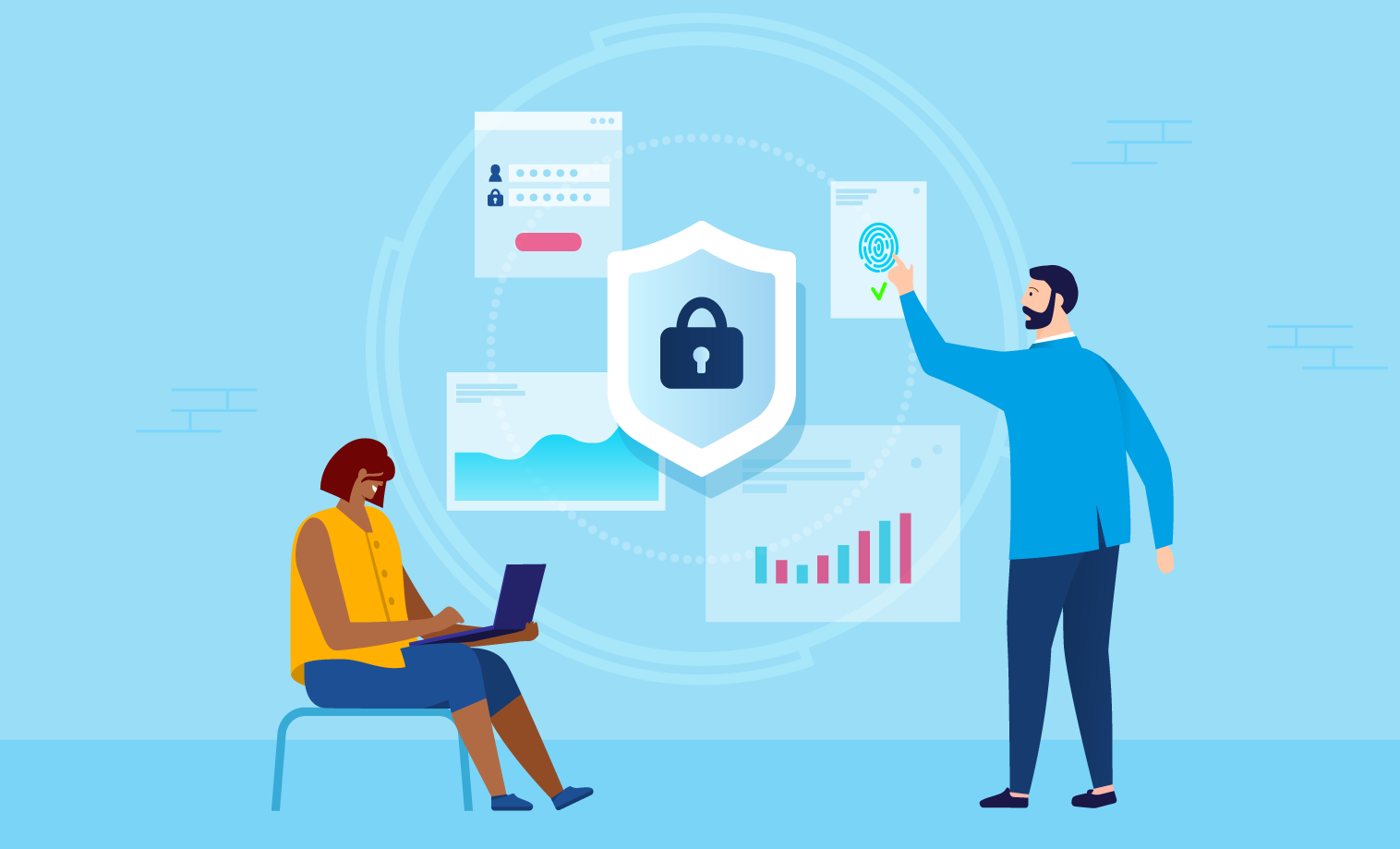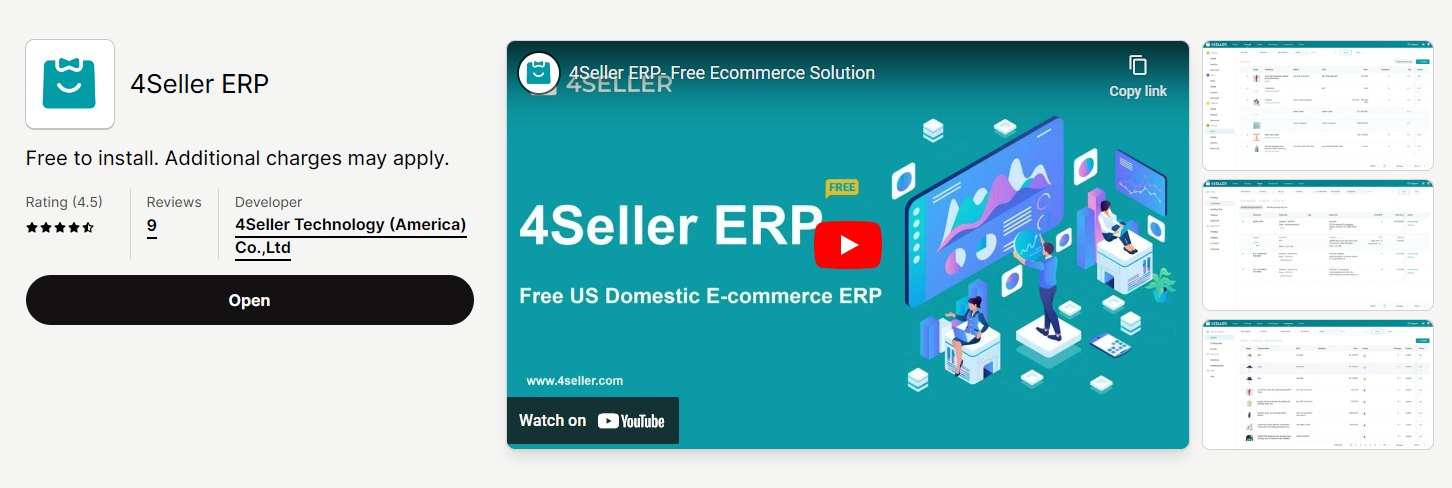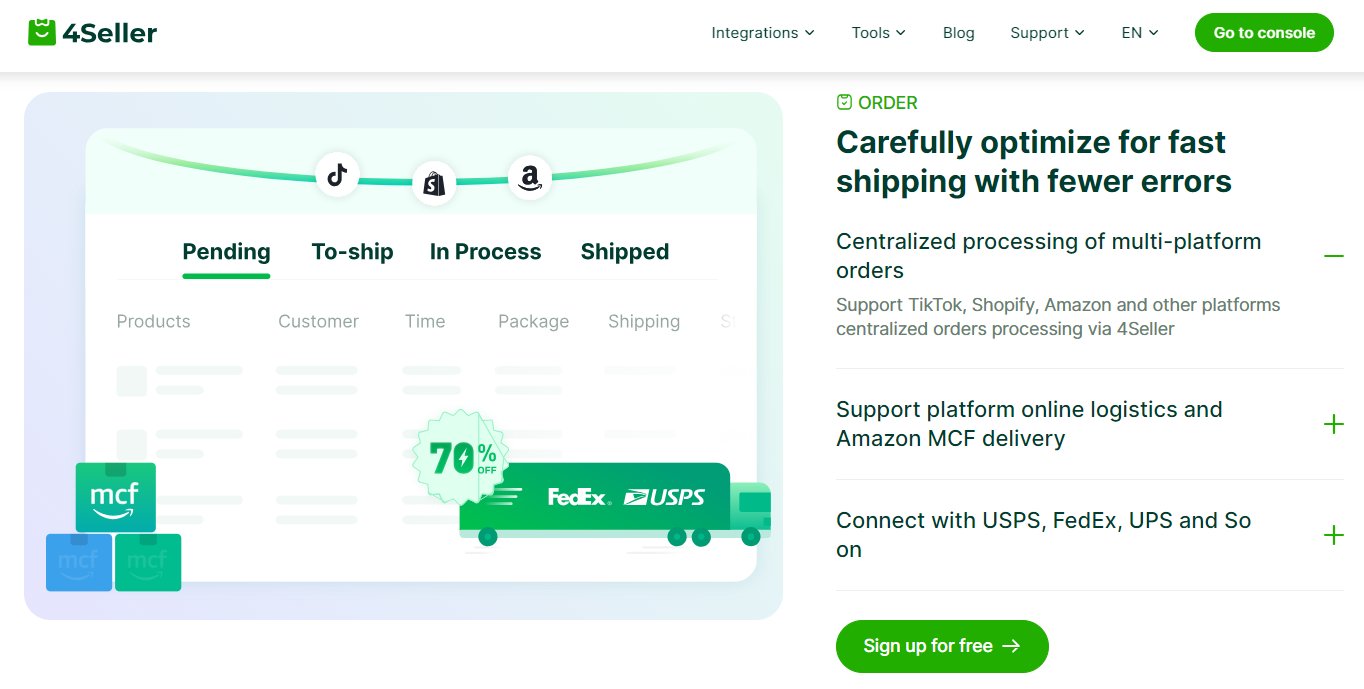Top 4 Best Shopify ERP Integration Solutions for 2024
 By Anna28 Apr,2024
By Anna28 Apr,2024If you're an online store owner on Shopify or other mainstream e-commerce platforms looking for ways to automate business processes and increase efficiency, consider integrating your Shopify store with an ERP system. With so many options available, it can be overwhelming to choose the best one. Don't panic, we've got you covered with our list of the 4 best Shopify ERP integration solutions for 2024.
This article serves as your ultimate guide to choose the top ERP integration solutions for Shopify in 2024. We've researched and compiled a list of the key features and benefits of the top 4 picks to help you make an informed decision for your business when it's time to connect ERP systems and Shopify. Read on to find the answers you've been looking for.
Table of Contents
- 01 Why Is Shopify ERP Integration Necessary?
- 02. What to Look for in Shopify ERP Integration?
- 03. 4 Best Shopify ERP Integration Solutions for 2024
Why Is Shopify ERP Integration Necessary?
Shopify is a popular eCommerce platform that enables 5.46 million businesses to set up online stores and sell products to customers worldwide. While Shopify offers several built-in features, it may not fulfill all the requirements of businesses.

An ERP (enterprise resource planning) system can help to bridge this gap by providing additional functionalities such as products management, order processing, inventory management, financial management, and customer relationship management (CRM), etc. This transformative move consolidates all your business processes in one place. You get better financial oversight, streamlined operations, and improved inventory management.
What to Look for in Shopify ERP Integration?
When looking for seamless integration, consider the following factors:
01. Compatibility
First, you need to make sure the ERP system you choose can handle your business requirements. The ERP app needs to align with your business processes and goals. For instance, if you have a high volume of orders, you may need an ERP that can process large data volumes and process orders quickly.
You also need to determine whether the ERP system offers industry-specific features. The more the solution is tailored to your specific industry needs, the better.
02. Data Security
Ensuring strong data security is critical when integrating your Shopify store with ERP software. Therefore, it is advised to select an ERP system that offers robust security features, including data encryption, access control, and backups.

03. Scalability
You’re not running your e-commerce business to stay where you are. Tomorrow, the business will become an enterprise. Therefore, scalability should be a top priority when selecting an ERP integration for your Shopify store. The ERP system you choose must have the capability to handle changing volumes of data, adapt to increasing business demands and growth.
To achieve this, it is crucial to choose an ERP system that comes with necessary upgrades, technical support, and continuous system updates to accommodate your business's growth. The process of updating the ERP system should also be easy for your teams to ensure minimal disruptions to your e-commerce operations. By choosing a scalable ERP system, you are setting your business up for long-term success.
04. User-Friendly Interface
An ERP system with a user-friendly interface is highly crucial for seamless integration with your Shopify store. Look for an ERP system that is easy to use and has an intuitive interface, enabling you to obtain clear and actionable insights into your business operations. Such insights will facilitate informed decision-making, leading to better business outcomes.
05. Customer Support
ERP software can be complex, making it challenging to understand for most users. So it is imperative to consider a service provider who offers reliable support, including technical assistance, training, and customer support.
This support is vital in setting up and using the integration effectively. But that’s not all. When it comes to streamlining your business processes, customer support plays a huge part, making it a top priority in the integration process for creating seamless operations.
06. Cost
While it may appear that investing in a new ERP integration solution would increase costs, it is ultimately a worthwhile investment. Taking full control of inventory management enables you to order supplies more effectively. You only spend on what is needed. However, you still need to consider the best value for money. It is essential to choose an ERP solution that offers the best value for your money by providing the necessary features at a reasonable price. Selecting a solution that meets your specific requirements is crucial for the success of your business. After all, your business's needs should always be your top priority.
4 Best Shopify ERP Integration Solutions for 2024
1. Dynamics 365 Business Central

Dynamics 365 is a modular, cloud-based ERP solution by Microsoft. It offers various tools for sales, marketing, CRM, project management, and marketing automation. With financial tracking and project service automation, sales forecasting, and more, you can streamline your business processes.
Key Features:
- Increase financial visibility: get an overview of your profit and costs, be in control of your tax calculation and reporting.
- Optimize inventory: deliver products on time and adapt to changing business models with visibility across purchasing, manufacturing, inventory, and warehouses.
- Unlock business insights: get overview of your inventory value, use AI to predict future sales, setup automatic ordering of products and be in control of costs.
Pricing:
- Offer a free trial for 30 days
- Fees vary from different business areas (Small and medium business/ Sales/ Finance/ Marketing/ Supply chain/ Service/ Project management / Human resources/ Customer data platform/ Commerce)
- One business area at least $70 per user/month.
2. Oracle NetSuite

NetSuite ERP is one of the most well-known options when it comes to cloud-based business management. NetSuite Connector allows you to set up data-mapping between NetSuite and your ecommerce storefronts, point of sale (POS) systems, online marketplaces and third-party logistics providers. By automating the transfer of data, you keep your vital information centralized and eliminate manual data entry, costly errors and delays, data exports and processes managed with spreadsheets and email.
Key Features:
- Improve inventory management: Accurately track and manage inventory across multiple warehouse locations.
- Automate order management: Automate order fulfillment by sending orders to 3PLs, vendors or warehouses.
- Simplify accounting: Automating repetitive tasks, such as recording transactions and managing AP/AR
Pricing:
- Standard Connector $199.92/ month
- Premium Connector $249.92/ month
- POS Connector $249.92/ month
- Premium+ Connector $375/ month
3. 4Seller ERP

4Seller ERP is another popular choice among e-commerce businesses. 4Seller ERP is a multichannel e-commerce management system, designed to help sellers to manage all of their businesses in one simple, centralized platform. Most commonly integrated with Shopify, TikTok Shop, Amazon, eBay, and Walmart, this ERP solution offers all the great business management functionalities. The user-friendly dashboard makes business management a breeze.
This company has been focusing on ERP software development for over 10 years, with mainstream SAAS software for ecommerce sellers all over the world. They have been putting resources into developing more and more useful functions and we all believe more sellers will find 4Seller ERP and start using it.

Key Features:
- List products on multiple channels:
- Dropship products:
- Sync Shopify products to TikTok:
- Sync inventory across stores:
- Centralize order management:
- Fulfill orders with Amazon MCF:
- Gain valuable insights:
- TikTok Bestsellers & competitive monitoring:
- TikTok creators batch outreach tool:
Pricing:
- Free to install and use. 4Seller ERP has only the free plan currently. No additional fees.
4. Odoo Connector

Odoo is an open-source ERP software, leveraging thousands of developers and business experts to build an ecosystem of fully integrated business apps. The system includes customer relationship management (CRM), e-commerce, accounting, billing, inventory management, project management, warehouse management, financial management, manufacturing, and purchasing.
Key Features:
- Sync all your products from Shopify to Odoo with this app.
- Sync all your Customers from Shopify to Odoo with this app.
- All the orders on Shopify can be synchronized to Odoo.
- This app also syncs the collection/categories of Shopify to Odoo.
- Payment mapping of Shopify's payment method and Odoo's payment.
Pricing:
- It offers a 7-day free trial.
- Basic plan $35/ month.
Final Word
In conclusion, there are various Shopify ERP integration solutions available that can help sellers manage their business with ease and grow their business scale. The apps that have been discussed in this article, such as Dynamics 365 Business Central, Oracle NetSuite, 4Seller ERP, and Odoo Connector are some of the best options for store owners looking to integrate with Shopify.
And we trust this article aids you in choosing the right ERP integration solution for your Shopify store! Keep in mind that the "best" choice depends on your specific requirements, whichever one you select, you're on the right track.
Happy selling! :)
Read More:
What is Multichannel Selling (2024)? Tips to Start
How to Connect TikTok Shop to Shopify 2024?



